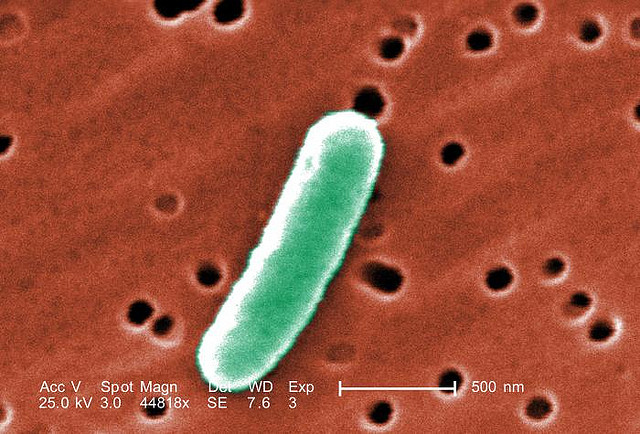"Super-Toxic" E.Coli Strain Kills 18 In Europe

(CDC)
A virulent strain of antibiotic-resistant E.coli has left 18 dead in Europe, left over 1,800 sick, and touched off a continent-wide scare against all produce, suspected to be the source of the infection.
Europeans are so anti-salad right now because those who became sick were “significantly more frequent consumers of raw tomatoes, cucumbers and lettuce,” according to a study conducted in Hamburg, the apparent epicenter of the outbreak. This has lead some countries to ban imported produce, and consumers to become fearful of all produce. Initially the Germans blamed organic Spanish cucumbers, but that was later retracted.
“It’s a big conversation issue among my friends,” one German student told the New York Times. “Some are no longer eating salads. Others are ignoring the medical recommendations. As for myself, frankly, people have died. For me, that’s the bottom line. I no longer eat salads. But then again, this E. coli strain could be in milk, meat, whatever. It is very worrying. I have no idea what to eat anymore.”
Germ sleuths might also trace back the source of the outbreak to a specific herd of cattle or even a single heffer, a so-called “smoking cow” in whose bowels the e.coli festered and mutated. The cow’s manure could have also tainted irrigation waters, which could have then lead to produce becoming contaminated with the bacteria.
Then there’s the worries that such an outbreak could occur in the US. The FDA has increased its monitoring of produce imported from Europe, although not very much is brought over. But the bigger concern is that right now we only test the food supply for a single strain of E.coli that up until now was thought the most dangerous. There’s a multitude of other kinds of E.colis out there that we don’t test for, and that’s where a stateside “super-toxic” E.coli could erupt from.
“There are no regulations in place today that would prevent this kind of outbreak from occurring,” in America, the Center for Science in the Public Interest told NPR.
Want more consumer news? Visit our parent organization, Consumer Reports, for the latest on scams, recalls, and other consumer issues.

